Nutrition for Brain Health: Eating for Cognitive Function
Hey there, my young and curious friends of 2024! It’s your favorite nutrition explorer, Nita Sharda, here to take you on an exciting journey into the world of nutrition and brain health. Now, I know what you might be thinking – “Brain health? Isn’t that just for old people?” But trust me, taking care of our brains is important at every age, and the foods we eat can play a big role in keeping our minds sharp and focused.
Today, we’re going to put on our explorer hats and discover how nutrition can support our cognitive function – that’s just a fancy way of saying how well our brains work. We’ll learn about the key nutrients our brains need to thrive, and how we can get them from delicious, whole foods. But before we dive in, let me make one thing clear – this is not about putting anyone on a strict diet or making them feel like they need to be perfect. It’s simply about empowering you with the knowledge and tools to make food choices that support your brain health and overall wellbeing.
So, are you ready to join me on this brain-boosting nutrition adventure? Let’s go!
Why is Nutrition Important for Brain Health?
First things first, let’s talk about why nutrition is so important when it comes to keeping our brains healthy. Our brains are like the control center of our bodies – they help us think, learn, remember, and do all the amazing things we’re capable of. But just like any other part of our body, our brains need the right fuel to function at their best.
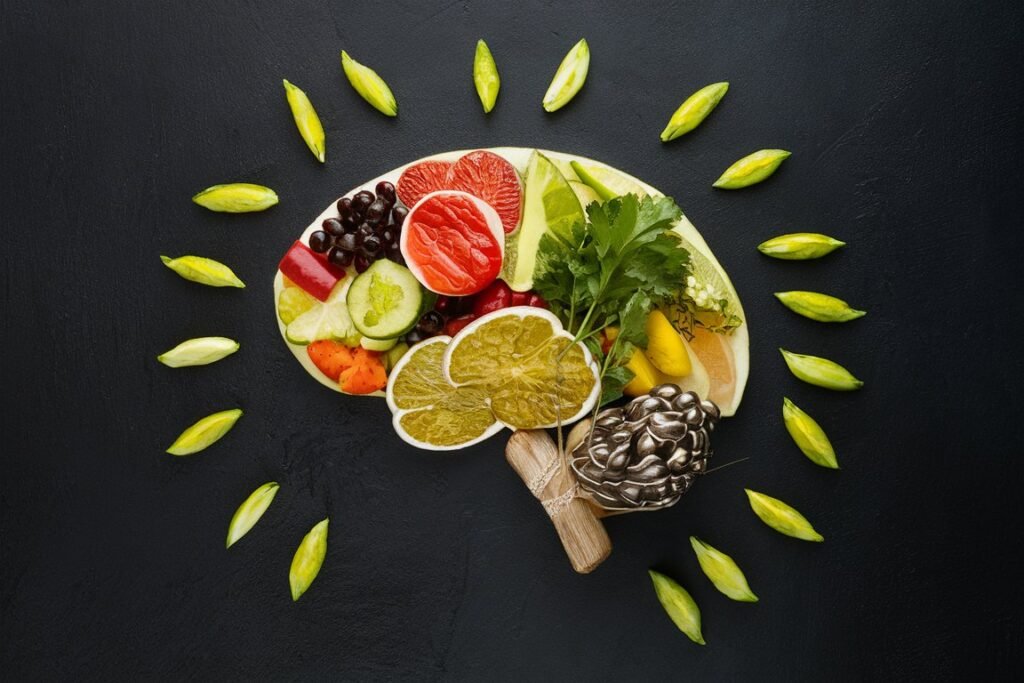
The foods we eat provide our brains with the nutrients they need to build and maintain healthy brain cells, as well as the energy they need to power through all the thinking, learning, and creating we do every day. Without proper nutrition, our brains may not develop or function as well as they could, and we may feel tired, unfocused, or even moody.
But don’t worry – fueling our brains doesn’t have to be complicated or involve any fancy supplements or special diets. By focusing on whole, nutrient-dense foods and paying attention to a few key nutrients, we can give our brains everything they need to thrive.
The Key Nutrients for Brain Health
So, what are the key nutrients our brains need to function at their best? Let’s take a closer look.
Omega-3 Fatty Acids
Omega-3 fatty acids are a type of healthy fat that’s essential for brain health. They help build and maintain the structure of our brain cells, and they also play a role in reducing inflammation and supporting healthy brain function.
Good sources of omega-3s include:
- Fatty fish like salmon, sardines, and mackerel
- Flaxseeds and chia seeds
- Walnuts
- Algae-based omega-3 supplements
Aim to include a source of omega-3s in your diet at least 2-3 times per week, or consider taking a supplement if you don’t eat fish regularly.
B Vitamins
B vitamins are a group of essential nutrients that play important roles in brain function, including energy production, neurotransmitter synthesis, and DNA repair. Some of the most important B vitamins for brain health include:
- Vitamin B6
- Vitamin B12
- Folate (also known as vitamin B9)
Good sources of B vitamins include:
- Leafy green vegetables like spinach and kale
- Whole grains like brown rice and quinoa
- Legumes like lentils and chickpeas
- Eggs
- Milk and other dairy products
Aim to include a variety of B vitamin-rich foods in your diet every day to support optimal brain function.
Antioxidants
Antioxidants are compounds that help protect our brain cells from damage caused by harmful molecules called free radicals. Over time, this damage can contribute to age-related cognitive decline and even neurodegenerative diseases like Alzheimer’s.
Good sources of antioxidants include:
- Colorful fruits and vegetables like berries, leafy greens, and sweet potatoes
- Nuts and seeds
- Dark chocolate (in moderation)
- Green tea
Aim to eat a rainbow of colorful fruits and vegetables every day to get a wide range of antioxidants in your diet.
Choline
Choline is a nutrient that’s important for brain development and function, particularly in the areas of memory and learning. It’s also a precursor to acetylcholine, a neurotransmitter that’s involved in attention, memory, and muscle control.
Good sources of choline include:
- Eggs (particularly the yolks)
- Beef liver
- Soybeans and other legumes
- Broccoli and other cruciferous vegetables
- Nuts and seeds
Aim to include a source of choline in your diet every day, particularly if you’re pregnant or breastfeeding, as choline is important for fetal brain development.
Putting It All Together: A Brain-Boosting Meal Plan
So, what does a brain-boosting meal plan actually look like? Here’s an example of what a day of eating might look like for someone looking to support their cognitive function:
Breakfast
- Scrambled eggs with spinach and whole grain toast
- Yogurt parfait with berries, nuts, and chia seeds
Snack
- Sliced bell peppers with hummus
Lunch
- Grilled salmon with quinoa and roasted broccoli
- Side salad with mixed greens, cherry tomatoes, and walnuts
Snack
- Apple slices with almond butter
Dinner
- Lentil and vegetable curry with brown rice
- Steamed edamame with sea salt
Snack
- Dark chocolate and green tea
Remember, this is just an example and everyone’s nutritional needs and preferences will be different. The key is to focus on whole, nutrient-dense foods and to pay attention to your hunger and fullness cues to ensure you’re getting enough fuel for your brain without overeating.
Tips for Optimizing Brain Health
In addition to focusing on the key nutrients we discussed earlier, there are a few other tips and tricks you can use to optimize your brain health:
- Stay hydrated. Drinking enough water is important for overall health and can also help support brain function and mood. Aim for at least 8-10 glasses of water per day, and more if you’re exercising heavily or in a hot environment.
- Get enough sleep. Sleep is crucial for brain health, as it’s when our brains consolidate memories, process information, and repair and regenerate cells. Aim for 7-9 hours of quality sleep per night, and try to establish a consistent sleep schedule.
- Exercise regularly. Exercise has been shown to improve brain function, increase the size of the hippocampus (the part of the brain involved in memory and learning), and reduce the risk of age-related cognitive decline. Aim for at least 30 minutes of moderate-intensity exercise most days of the week.
- Manage stress. Chronic stress can have negative effects on brain health, including memory loss, difficulty concentrating, and even shrinkage of the hippocampus. Find healthy ways to manage stress, such as meditation, deep breathing, or spending time in nature.
The Bottom Line
Wow, we covered a lot of ground today! But I hope this gives you a better understanding of how nutrition can support our brain health and cognitive function, and how we can get the nutrients our brains need from delicious, whole foods.
Remember, taking care of our brains is important at every age, and the choices we make today can have a big impact on our cognitive health down the road. By focusing on nutrient-dense foods, staying hydrated, getting enough sleep and exercise, and managing stress, we can give our brains the support they need to thrive.
If you’re interested in using nutrition to support your brain health, start by making small changes to your diet and paying attention to how you feel. And most importantly, have fun with it! Eating should be a joyful and nourishing experience, not a source of stress or restriction.
Thanks for joining me on this brain-boosting nutrition adventure, my young and amazing friends. Until next time, keep exploring, keep learning, and keep fueling your body and mind with the good stuff. And if you ever have any questions or need some extra support on your nutrition and brain health journey, don’t hesitate to reach out – I’m always here to help!




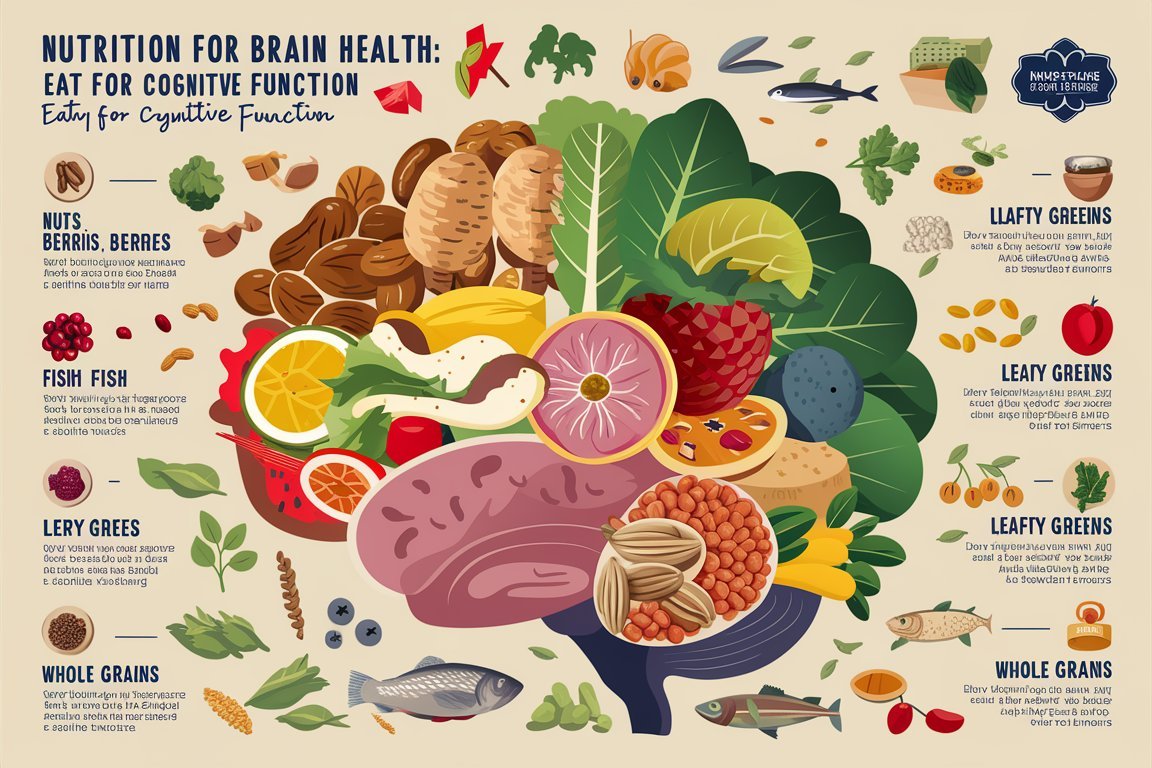
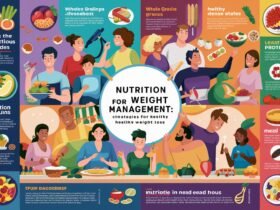





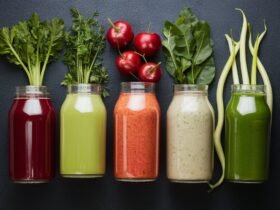
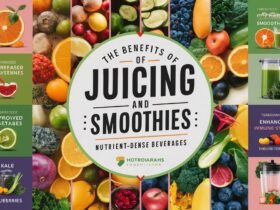
1 Comment